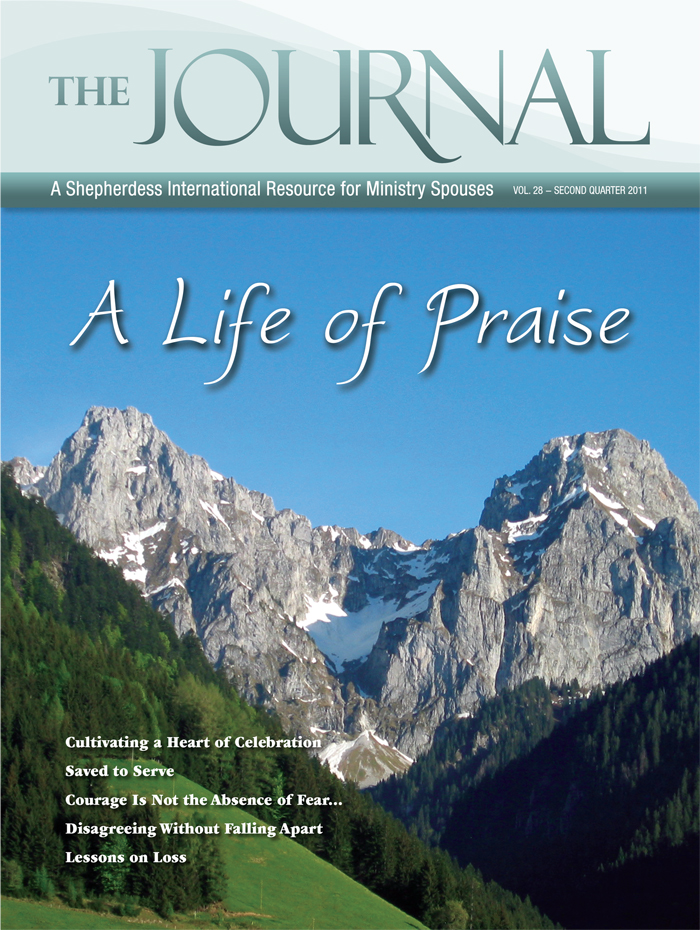In the last year, I’ve learned a lot about loss. About how inept most people are at offering comfort. And how we shrink from actually sharing another’s grief.
Last summer my sister and her husband lost a child.
The thing is, their baby wasn’t born yet. It was due on Christmas Eve. So, since people never saw or held it, their “comfort” tended toward comments such as “At least it wasn’t a ‘real’ baby!” and “You’re young—you have plenty of time to try again.”
And so while my sister was going through the very natural stages of grief, anger, guilt, and denial (not necessarily in that order), friends who knew about her loss couldn’t figure out why she hadn’t “bounced back yet.” Or why she couldn’t just “snap out of it” and get back to life as usual.
The crazy thing is, before this happened I’d probably have offered many of the same shallow, well-intentioned platitudes. Pat phrases that offer zero empathy and sometimes border on the insulting. Empty words that show absolutely no intention of entering into that person’s grief. And I wouldn’t have known the difference. Like so many, I’ve often been wrapped up in my own life and assumed that when public signs of sadness disappeared, private grief must be finished, too.
I know better now.
Over the past months, I’ve watched my sister do what every young should-have-been mother does. She hid her tears. She pushed through sleepless nights. She never advertised that some days she fought panic attacks when she saw other mothers carrying babies.
Casual observers would never guess the ache that is often expressed only in private when someone suffers a loss. Friends can seem to disappear after the initial tragedy, either giving well-meaning space or out of ignorant disregard. When the loss isn’t conventional (such as with miscarriage or stillbirth), even relatives aren’t guaranteed to understand. Sometimes church members remember to check in, but sometimes they forget.
And so those who have lost are often left to grieve in silence. But that’s because in many cultures, especially Western ones, we’re not comfortable with grief. We don’t know what to do or say.
It shouldn’t be that way.
Scripture tells us to mourn with those who mourn, just as we share joy with those who rejoice (Rom. 12:15). Some cultures are definitely better at handling grief than others, but if we are truly following a biblical lifestyle, no culture should inhibit us from offering sincere comfort in times of loss.
I’ve learned over the past year that giving comfort doesn’t necessarily mean that you know what to say. Often there are no words. Many times, anything you might say is almost guaranteed to sound trite and cliché. Nice sentences like “It’s all in God’s plan for your life!” or “Just believe that it was God’s will!” may be true, but they are probably not very comforting. Often those casual phrases may even aggravate the grief and inspire bitterness or anger at God instead of being reassuring—no matter how genuinely they are said.
Sometimes the best thing you can do is just sit. Cry with people who are grieving. Listen. Keep their confidences. Pray with them and for them. Be available. Do something instead of merely offering vague help.
Most of all, remember to check in with them later. It’s appalling how quickly the rest of the world seems to move on after someone suffers a loss. People may flock around for the first few days, but then life calls them back to their own interests. It means a lot when the pastor’s wife bothers to call or visit or write after a few weeks or months, letting them know that they haven’t been forgotten.
This past Christmas Eve, I should have been at the hospital with my sister. I should have been giving her tiny baby its first bath, just like she did for mine. We would have been rejoicing over the miracle of life, and I would have been introducing my son Tristan to his very first first-cousin. And I’m sure that another year, all that will happen. But it wasn’t this time. It wasn’t this baby.
I learned a lot about loss last year. And I hope that those lessons have not only made me a better sister but will also make me a more compassionate pastor’s wife. I hope that I won’t brush aside the aching grief of another church member with well-meaning platitudes and rehearsed phrases.
I can’t say that grief is comfortable territory for me. But I hope these lessons will bring me deeper into the biblical mandate to truly bear each other’s griefs and share each other’s sorrows. Because I’d hate for anyone to feel that their own pastor’s wife refused to meaningfully engage in their pain.
